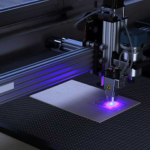A key goal in modern healthcare settings is protecting patient well-being through medication security, with Digilock medicine cabinet locks playing an essential part in strengthening access control measures across facilities to limit unauthorized access to medications stored therein. Access control measures refer to technologies and protocols that limit who has access to certain areas or resources within an institution. In healthcare environments, this could include only authorized personnel being allowed access so they may retrieve and administer these essential treatments to patients.
Understanding Access Control Measures
Healthcare access control systems range from basic electronic locks to sophisticated biometric solutions that employ user credentials such as keycards, PIN codes, fingerprint scanning, or facial recognition technology for restricting user entry into buildings or facilities. These access systems work by restricting entry based on credentials such as keycards, PIN codes, or fingerprint recognition technologies. Healthcare facilities that utilize these technologies to efficiently monitor access to medication storage units can effectively deter theft while safeguarding against improper tampering or misuse.
Implementing effective access control measures requires strategic planning and technology integration tailored to the particular requirements of healthcare environments. Modern systems feature scalability and customization features that allow healthcare facilities to adapt security protocols as needed, helping uphold patient safety while adhering to regulatory compliance regulations. By creating a secure environment for medication administration, healthcare providers uphold patient safety while adhering to compliance obligations.
Technologies Enhancing Medication Security
Digilock medicine cabinet locks stand out among technology designed to increase medication security with their reliability and effectiveness, being among the premier tools. Built specifically to keep medications secure from unwarranted access by authorized personnel only. By employing advanced locking mechanisms such as key cards and logbooks, Digilock systems not only prevent unauthorized entry but also keep an account of any attempted access thereby maintaining accountability while mitigating risks associated with potential breaches in medication handling practices.
Digilock medicine cabinet locks go beyond conventional security measures by offering advanced features, including audit trails and real-time monitoring capabilities. By investing in Digilock technology, healthcare facilities gain complete control over medication access – improving operational efficiencies while simultaneously reinforcing patient safety protocols.
Integrating Access Control into Healthcare Operations
Integrating access control measures into healthcare operations is a multistep process that begins with an evaluation of security needs. Healthcare facilities should carefully examine risks related to medication storage and access, taking into account factors like facility layout, patient demographics, and regulatory requirements when making this assessment. Once identified, suitable technologies such as Digilock medicine cabinet locks that offer robust protection features can then be selected by these facilities for their environment.
Implementation requires more than simply installing hardware; it includes seamlessly incorporating access control systems into existing operational procedures and training staff on how to use access credentials properly and emergency procedures related to medication security. By standardizing access control procedures across staff levels, healthcare providers ensure consistent adherence to security protocols which reduce the risks of medication errors, theft, or unauthorized access.
Regulatory Compliance and Standards
Meeting HIPAA (Health Insurance Portability and Accountability Act) regulations is of utmost importance in maintaining patient privacy and data security. Access control systems like Digilock medicine cabinet locks play an invaluable role in helping healthcare facilities achieve and sustain regulatory compliance; by restricting entry to medication storage units only authorized personnel may handle or administer them according to predefined protocols.
Digilock locks are engineered to meet stringent regulatory standards by offering audit trails and real-time monitoring capabilities, which enable healthcare providers to track access to sensitive medications while keeping comprehensive records of transactions. By adopting Digilock technology, healthcare facilities demonstrate their dedication to patient safety while adhering to regulatory adherence thereby decreasing breaches or noncompliance penalties. Furthermore, effective implementation of access control measures not only protects medication integrity but also fosters accountability within healthcare organizations which ultimately leads to increased operational efficiencies and better patient care outcomes.
Future Trends in Access Control for Healthcare
Access control technologies continue to advance rapidly. Going forward, advances may include artificial intelligence-powered predictive security analytics as well as blockchain for enhanced data integrity; both innovations promise to strengthen medication security while streamlining healthcare operations.
Conclusion
Access control technologies like Digilock medicine cabinet locks play an essential part in providing healthcare facilities with effective medication security. By employing stringent access protocols, facilities can protect patient well-being, prevent medication errors, and remain compliant with regulatory mandates – not to mention foster a culture of trust among healthcare providers and patients alike. Investing in this type of technology not only increases security but fosters trust between care providers and patients as well.










